IKEA's PS 2017 collection includes "no waste" products made from recycled materials
IKEA has unveiled furniture and homeware made from recycled wood, plastic and glass as part of its latest PS collection aimed at young urban dwellers (+ slideshow).
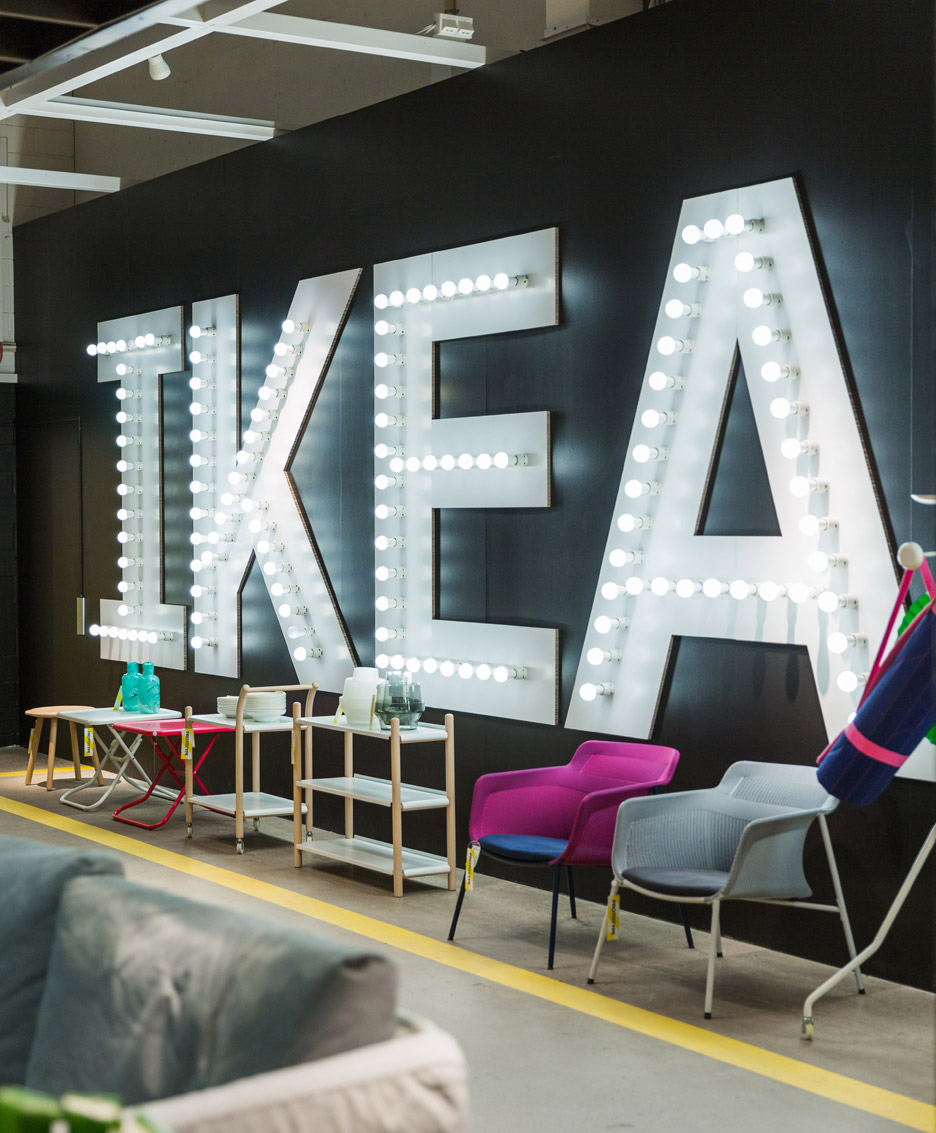
The Swedish furniture giant collaborated with 21 designers to create the 2017 PS range of 60 products, which it describes as offering "high design values at a great price".
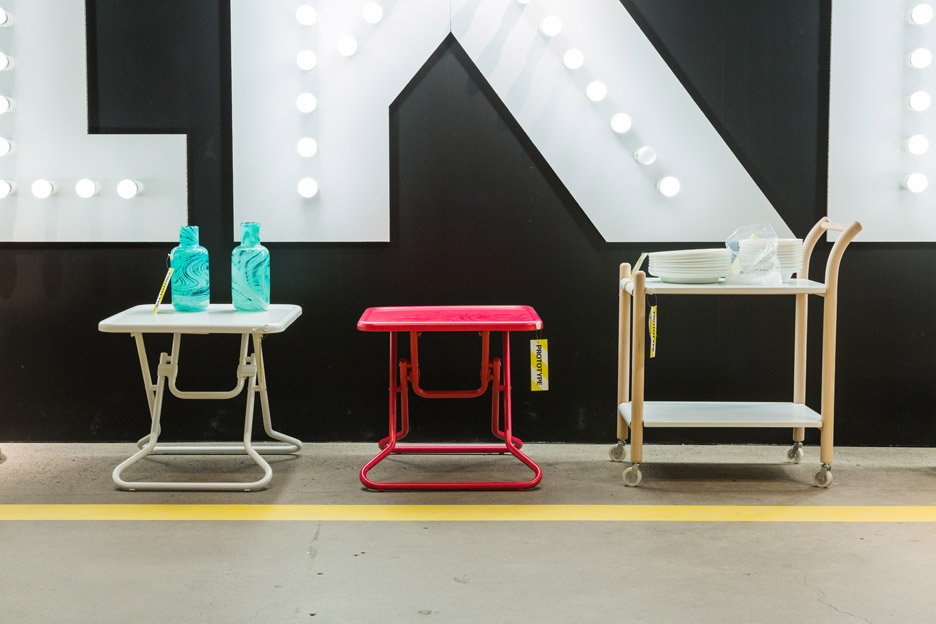
A number of experimental manufacturing techniques developed on IKEA's factory floor have been used to create the designs. These include recycling processes for IKEA's own packaging and manufacturing waste, which have been utilised for a homeware series that Ikea described as "no waste" products.
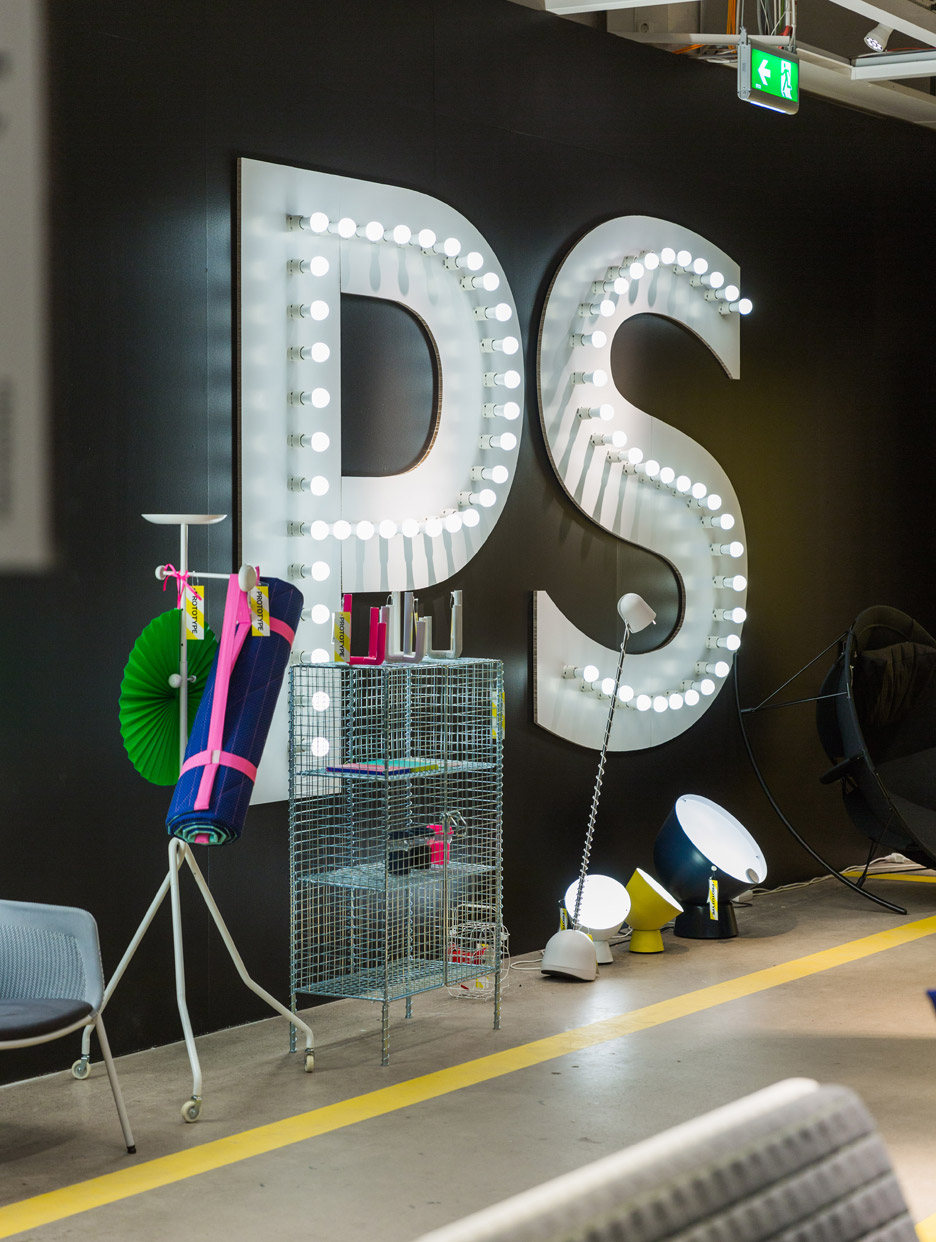
For example, product developer Anna Granath has used recycled PET plastic bottles and wood to create a set of kitchen cabinet doors called Kungsbacka.
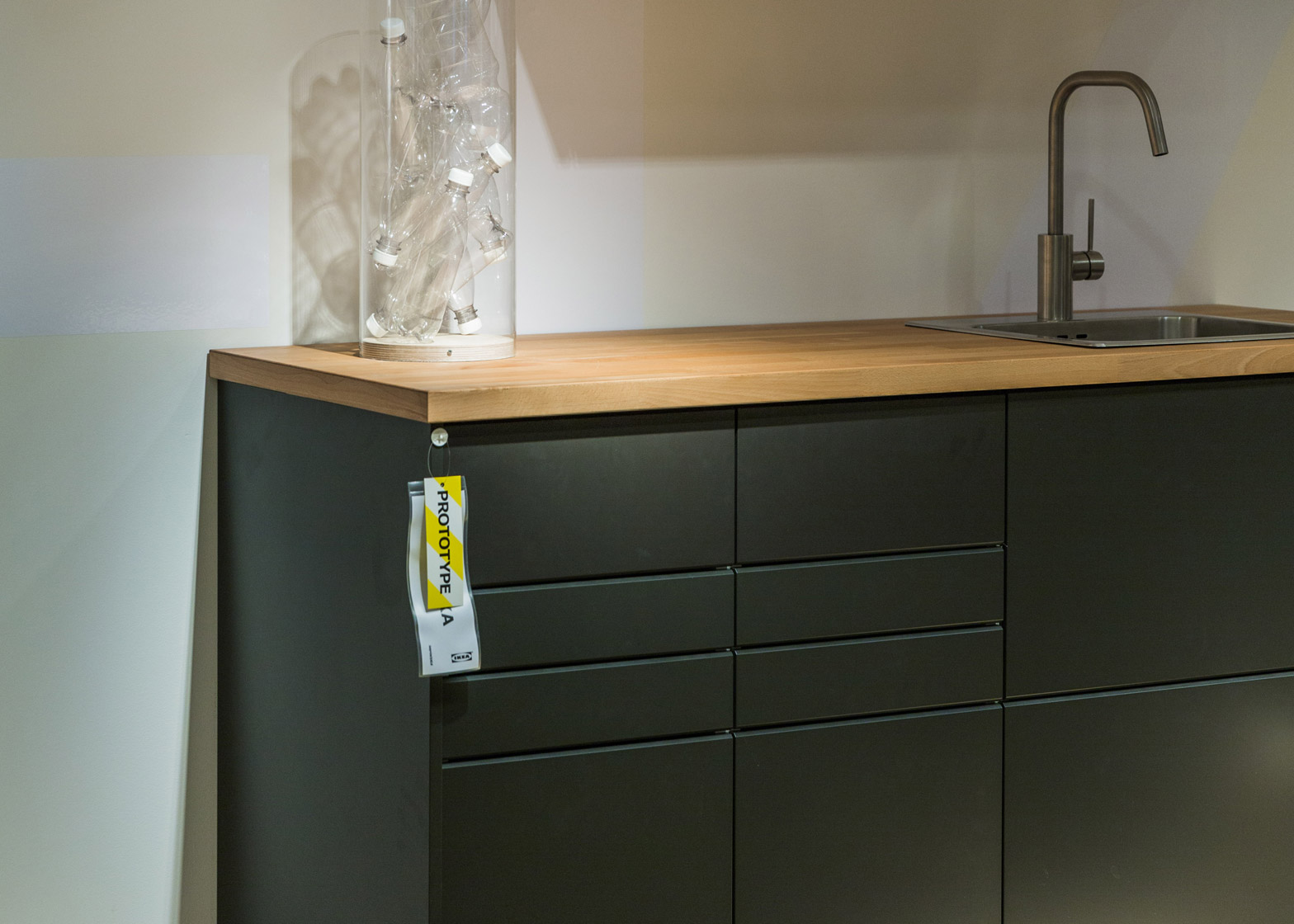
Stockholm studio Form Us With Love, which previously created a pair of moulded plastic chairs for IKEA, has designed another seat for the brand.
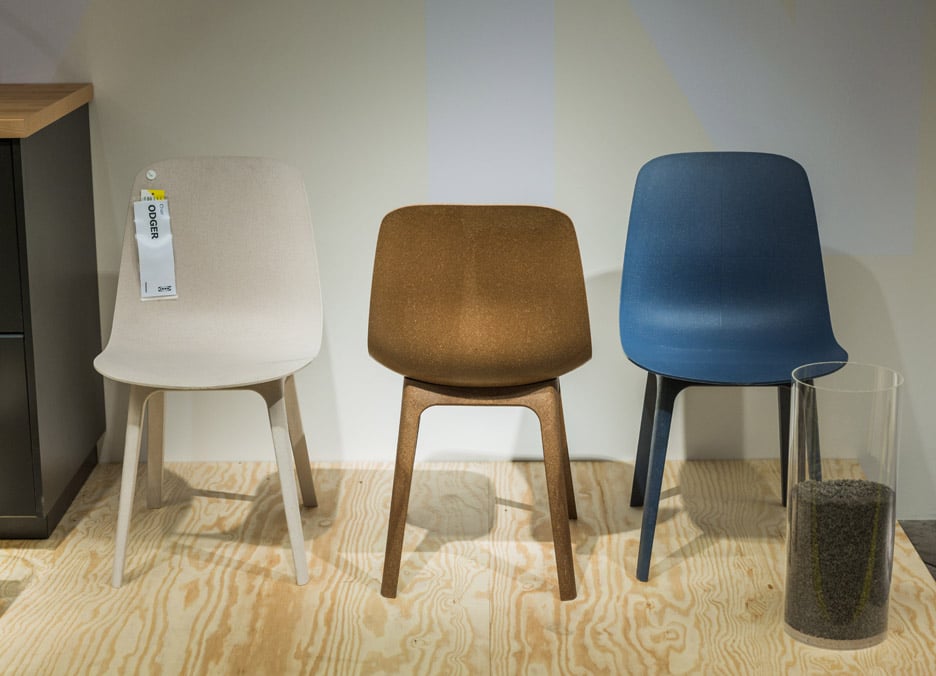
This chair, called Odger, has a rounded shell moulded from 70 per cent recycled plastic and 30 per cent renewable wood. It will be available from 2017 in white, blue and brown, with wood flakes visible across the surface.
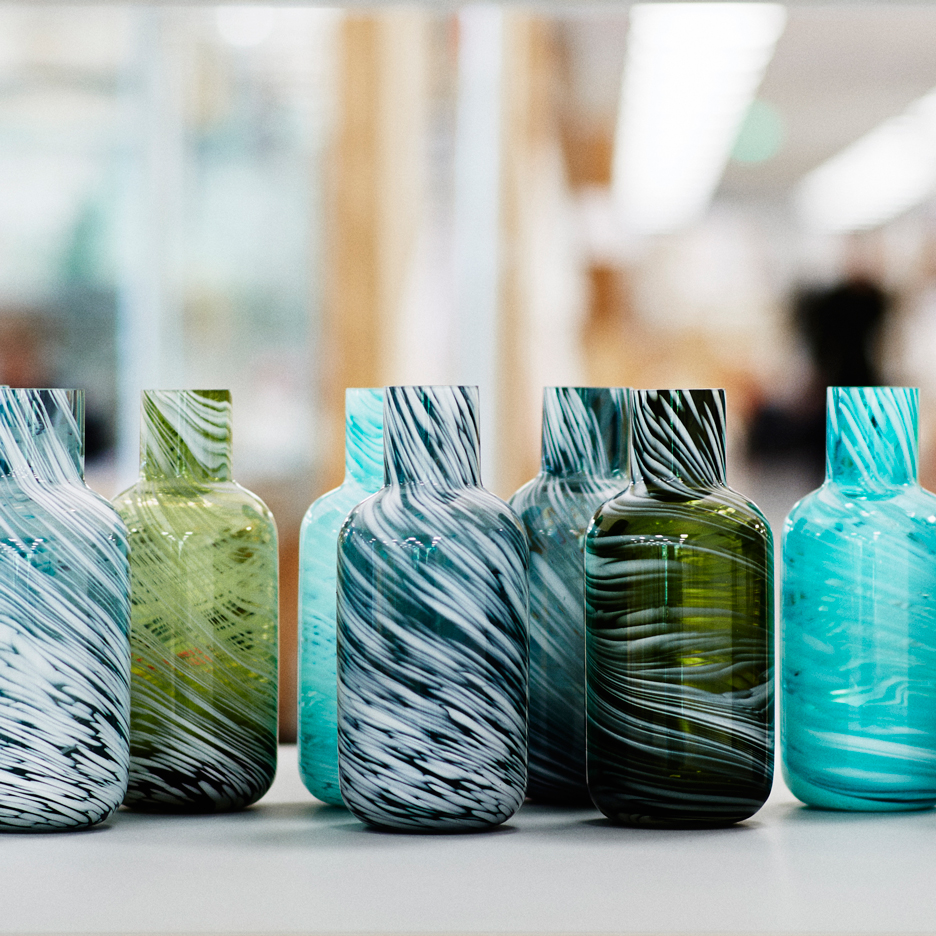
The marbled IKEA PS Vases by designer Iina Vuorivirta are made by re-melting glass that has been rejected due to bubbles or defects created during production at the company's facility in China.
"To create something unique that can also be mass-produced was an exciting challenge for me as a designer, and for Ikea," said Vuorivirta.
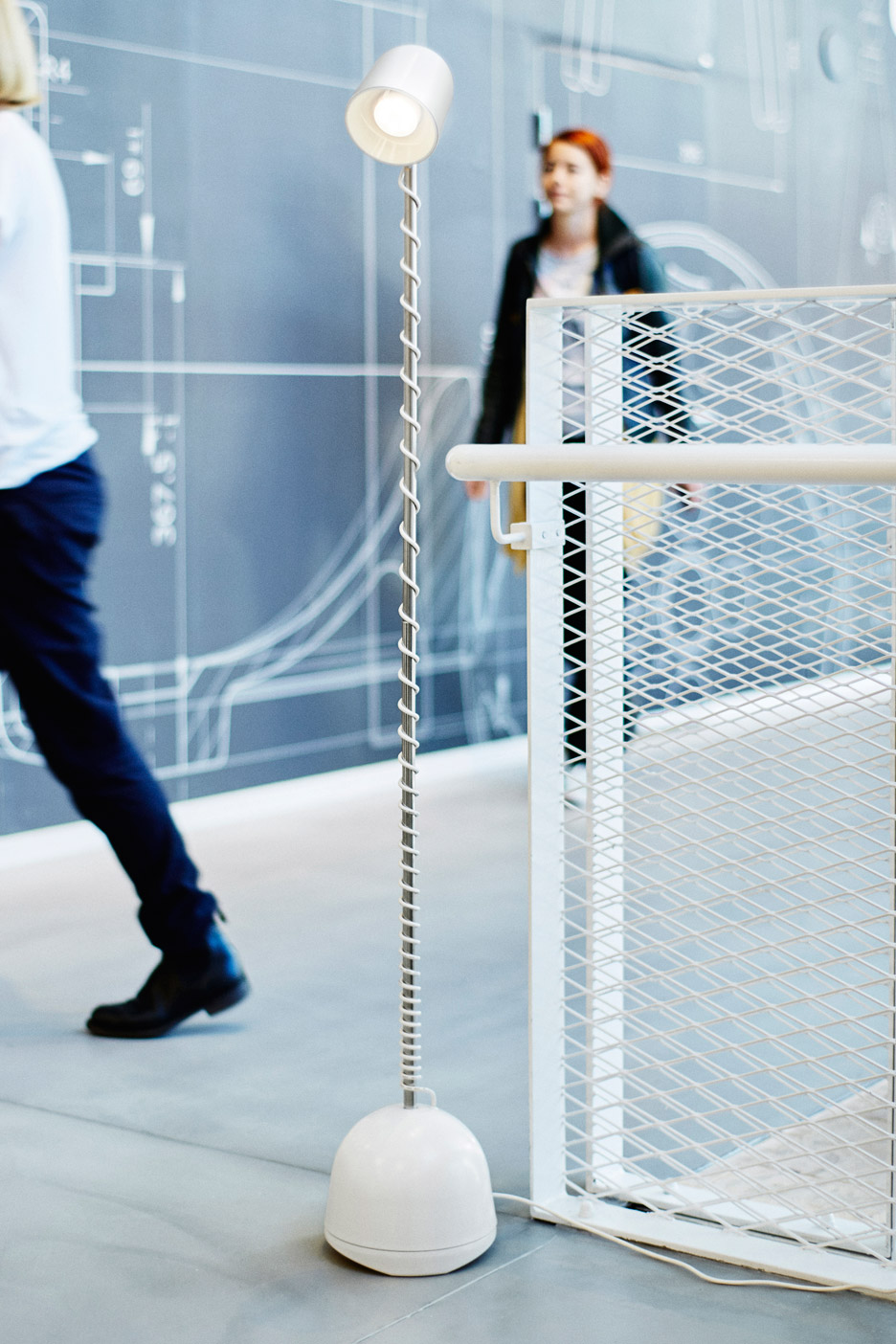
"Despite all vases being mouth-blown in the same mould, they get a unique look because the melted glass is made of various shades of leftover material from the glassworks," she said.
The plastic film used to wrap Ikea's delivery palettes at stores in Italy and France has been turned into granules, then used to produce the Skrutt desk pad.
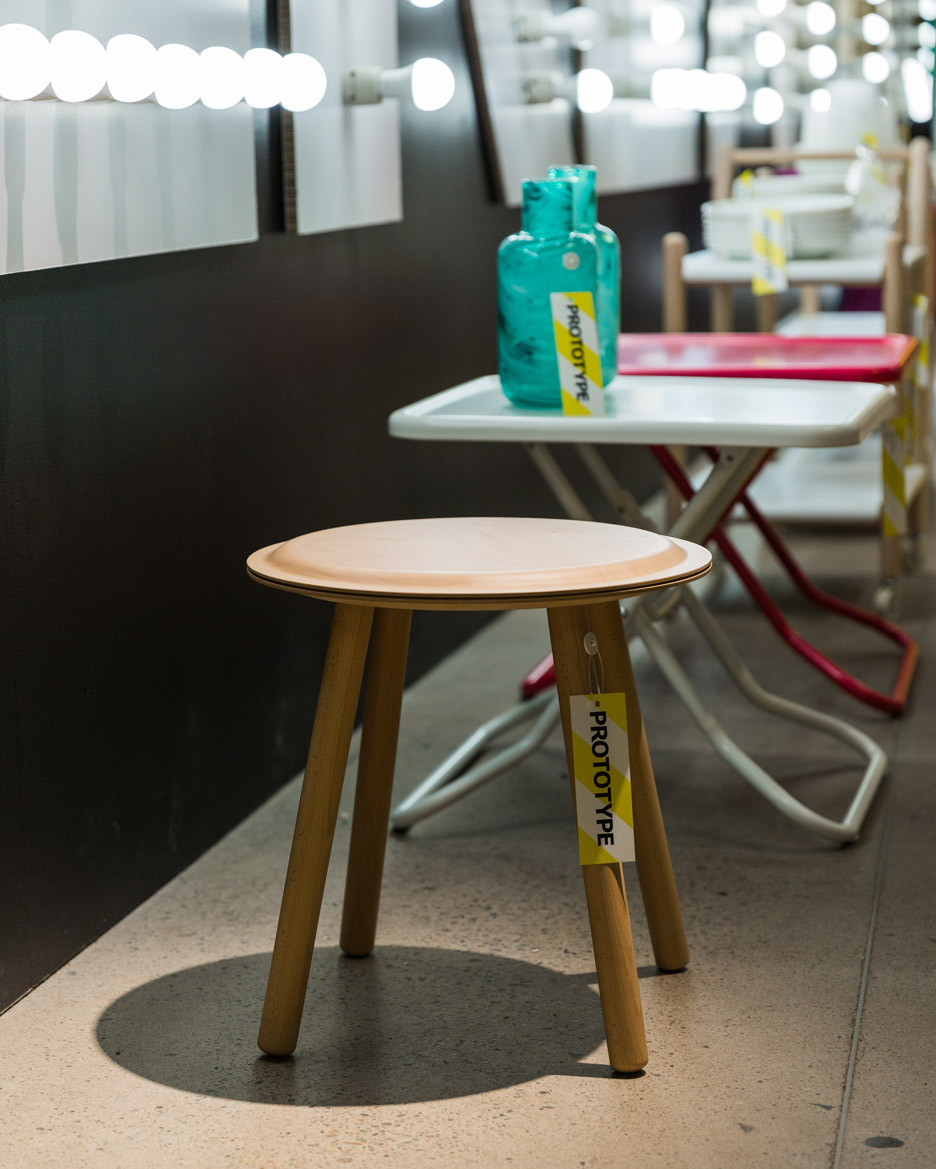
IKEA is also exploring the use of a flat-bed knitting machine to create a thin, lightweight material for seating that is designed to eliminate the need to pack and ship big pieces of foam.
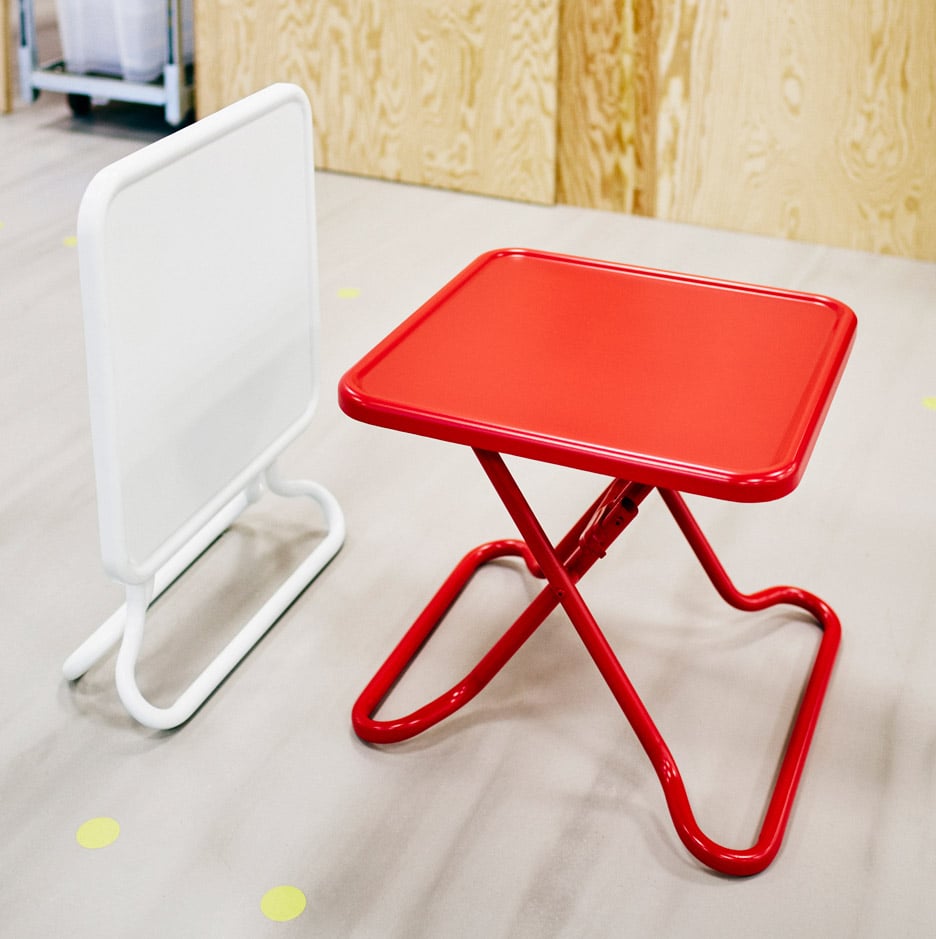
More and more design companies are switching focus to recycled materials, as discarded items become a growing environmental concern.
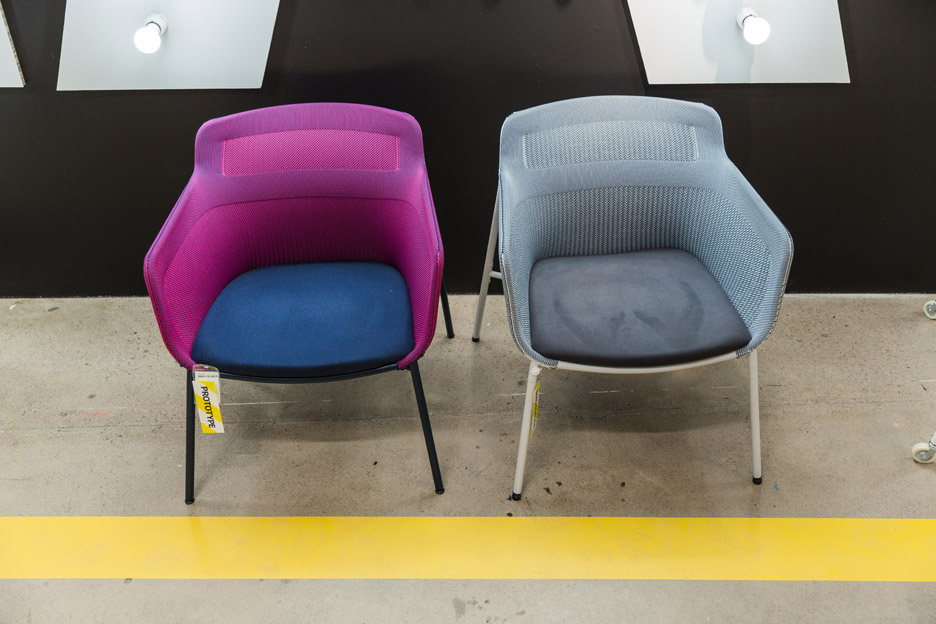
Dezeen recently spoke to Cyrill Gutcsh, founder of Parley for the Oceans initiative that aims to abolish the use of virgin plastic and encourage large brands to switch to recycled material instead.
Parley teamed up with Adidas to launch a trainer made from plastic removed from the oceans.
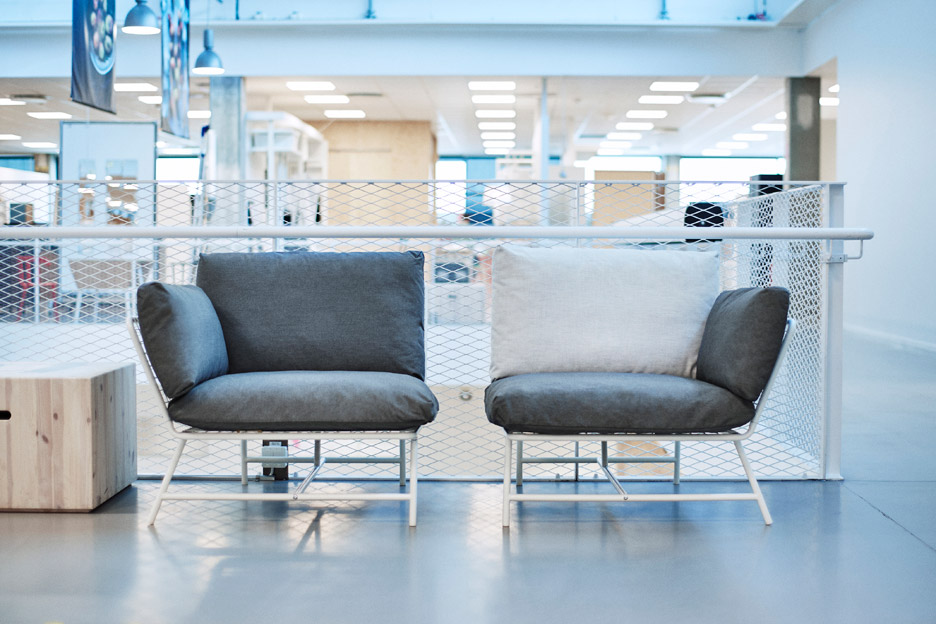
Other items in IKEA's PS 2017 collection include cage-like storage units, and a bowl-shaped chair on rocking legs.
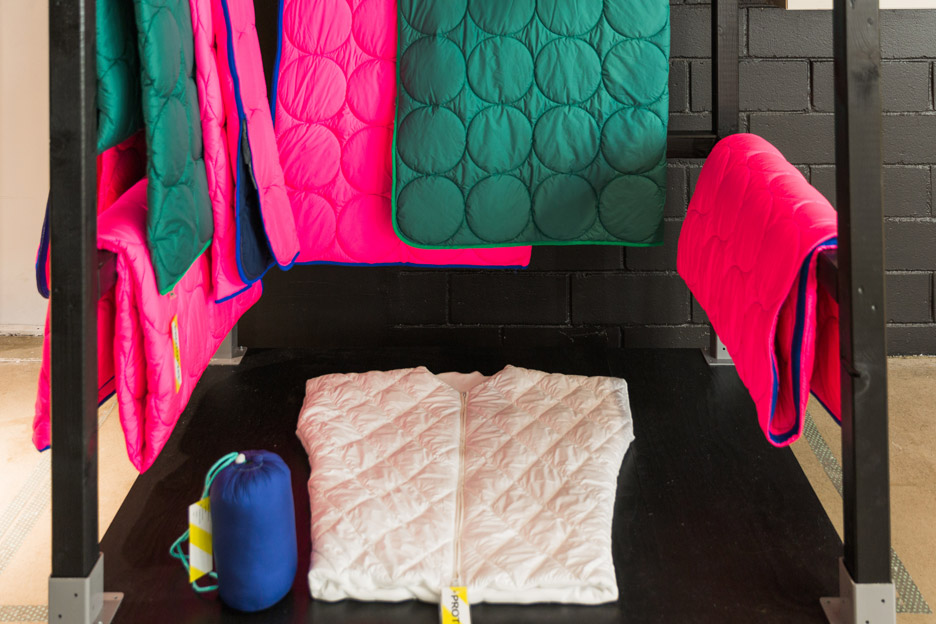
A foldable table is designed to be easily pulled out and used while seated on the floor, or working on a sofa. The collection also features a "quillow" — a quilt that can be folded up and used as a cushion.
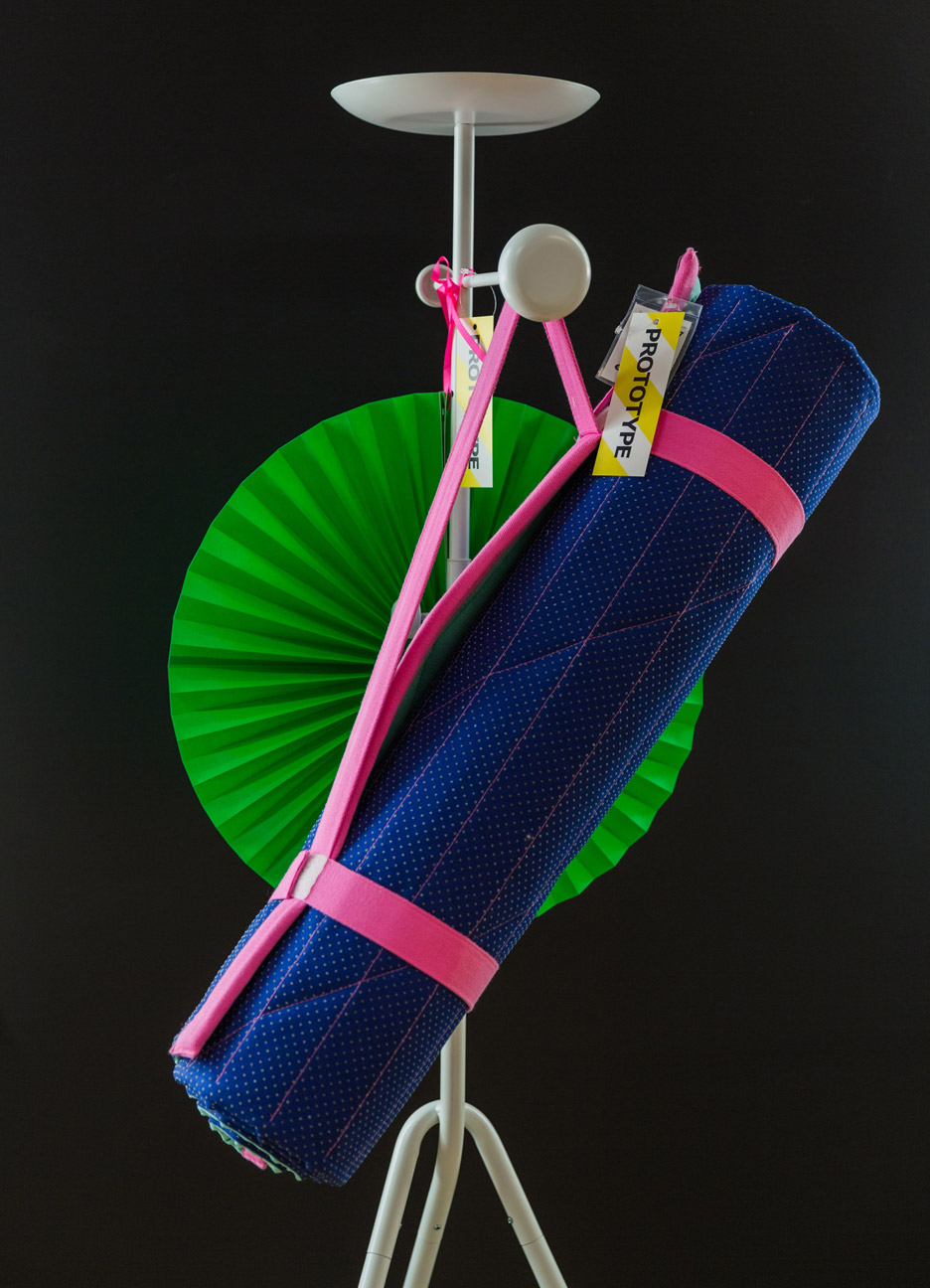
The company hopes that the products will resonate with an environmentally conscious younger generation, and cater for its need for flexible furniture in smaller spaces.
"The idea is to create a collection that is for the young, urban generation living in the city — a collection that could be moveable, adaptable, changeable, to suit their new needs at home," said James Futcher, creative leader for the collection.
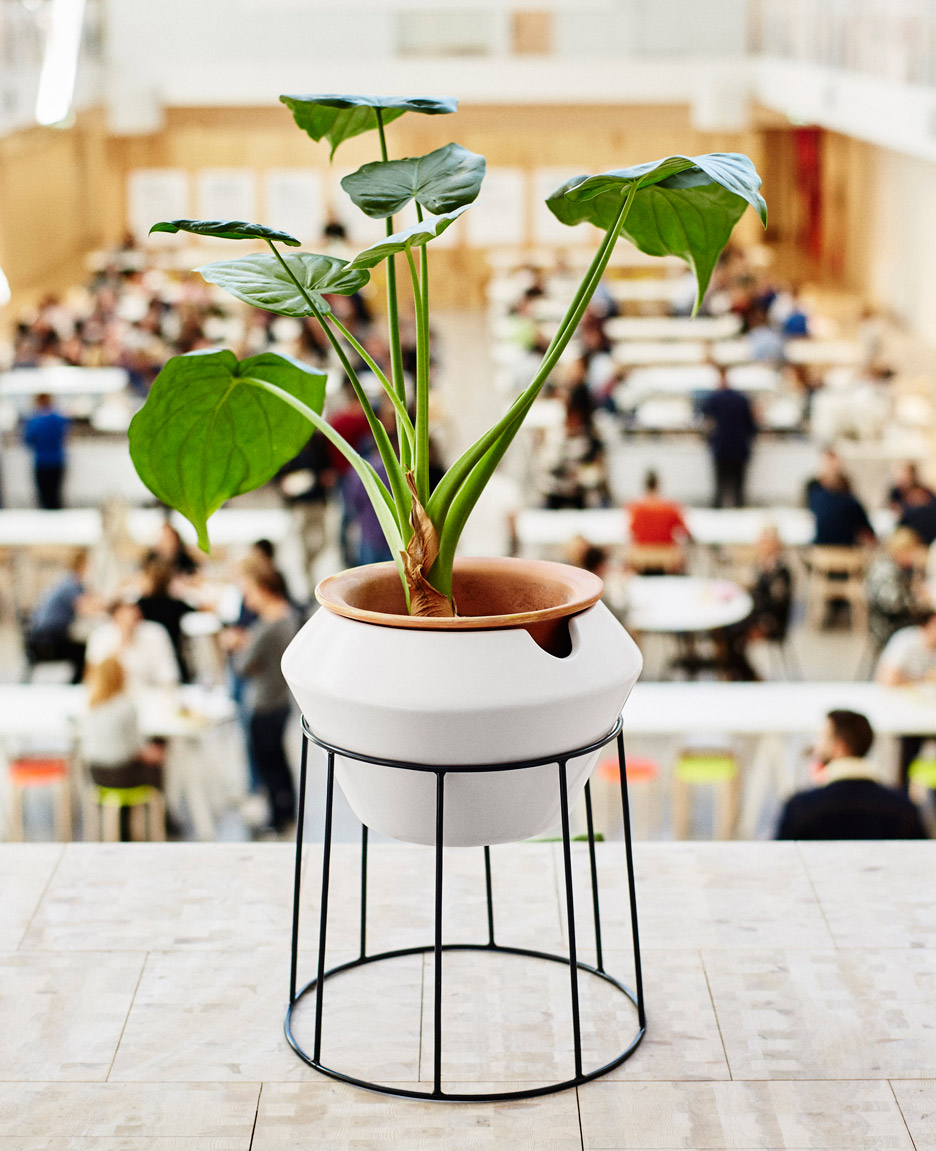
"And then comfort becomes a crucial part — how can we create products that are not just about comfort, as in what you sit on, but comfort with products that feel good to use and give you added functionality?"
PS, which stands for post scriptum, is a collection introduced about every three years to complement the standard range of IKEA products. The first was released in 1992, and the 2014 edition was aimed at growing generation of young space-poor city dwellers who are more likely to rent their homes on a temporary basis.
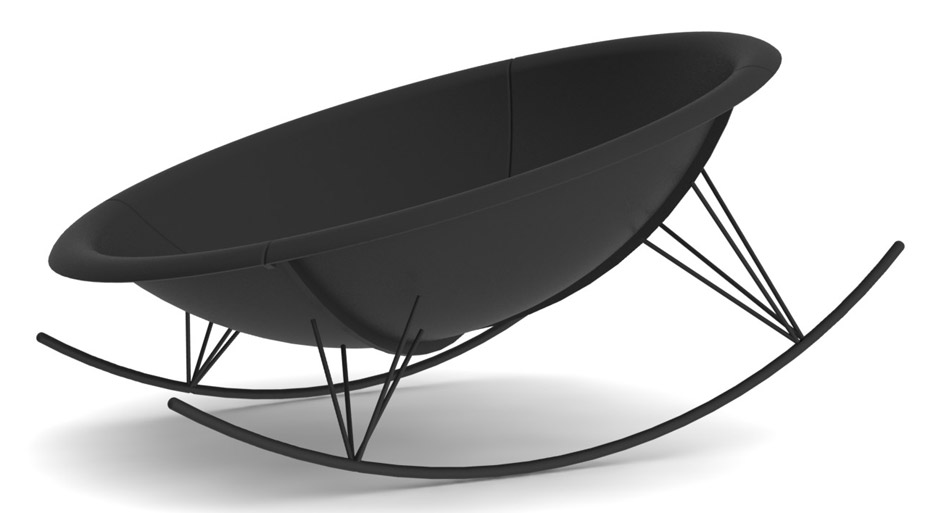
Ikea recently announced a collaboration with Hay, which began by the Danish design brand redesigning the company's iconic blue and yellow bag.
An IKEA museum is scheduled to open at the end of this month, inside the building that housed the company's first ever store.